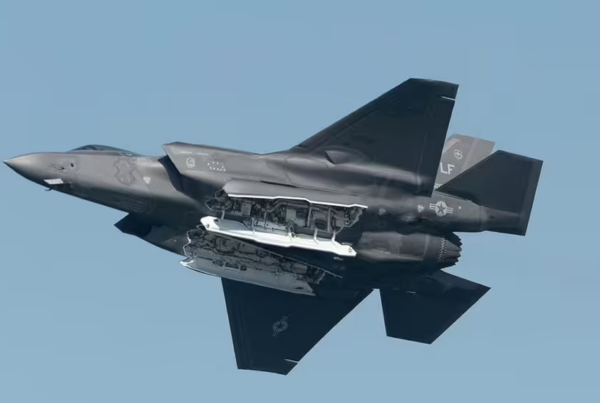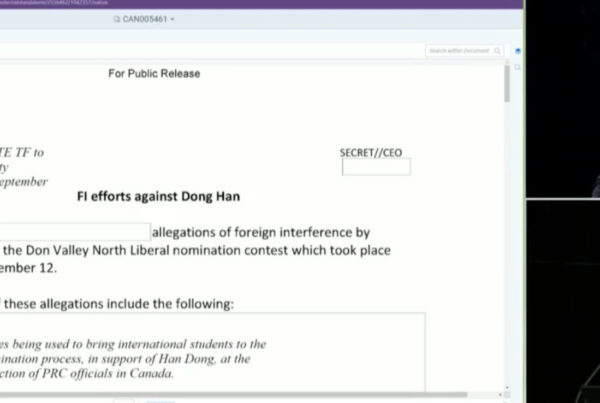“The victimization of people, be it for profit or on behalf of a cause, is a crime”
– Dr. Jennifer L. Hesterman
Introduction
The United States, United Kingdom, and Canada are significant forces in what currently constitutes the Western world. These three nations are closely linked through their overlapping history, ongoing diplomatic relations, and economic power. In short, these three nations are powerful global authorities. It is imperative to note, however, that the powerful and advantageous position held by these nations is not without tribulation. In modern history, Western powers such as the US, the UK, and Canada have been in conflict with international and domestic terrorist organizations that threaten to destroy the social foundations that these countries attribute to their success.
The West has attempted to employ a number of solutions in an effort to combat terrorism. Some resolutions include the legal prosecution of terrorists at the domestic and international level, or engaging terrorists through military combat that is considered ‘warfare’. The purpose of this briefing note is to determine how Western states like the US, the UK, and Canada deal with terrorism, and whether or not terrorism should be contextualized as an ‘act of war’ or a domestic crime. This briefing note will assess the historical perception of war and determine if terrorism can effectively be considered an ‘act of war’. Next, it is imperative to assess modern legal documentation and federal statutes pertaining to terrorism, and the criminal elements involved in terrorism to determine its validity as a crime. Once both an ‘act of war’ and a crime have been appropriately defined and contextualized, this briefing note will assess their modern day application compared to the current use of terminology in international and domestic terrorism.
Defining the Threat
Decades of attempts by scholars and world leaders have been foiled by political indecision and differences. Various attempts through diplomatic relations have failed to yield an internationally accepted definition of terrorism. The issue behind definitional solidarity at the international level is encapsulated by the phrase, “one man’s terrorist is another man’s freedom fighter.” International bodies, like the United Nations, must balance competing security issues and views on terrorism. How terrorism is defined in Canada may not be considered as such in Ireland or Libya.
Without a uniform globally accepted definition of terrorism it is impossible to criminally prosecute individuals for the crime of terrorism at the international level. All terrorism related matters must be dealt with at the domestic level. This, in turn, complicates legal proceedings when dealing with transnational terrorism spanning a multitude of legal jurisdictions.
Terrorism in Canada and the United Kingdom
Despite indecision internationally, Western countries such as Canada and the United Kingdom have established definitions of terrorism that describe the act from a legal perspective. Each definition broadly encapsulates the Western perception of terrorism. For example, in Canada, Section 83.01 of the Criminal Code defines terrorism as an act committed:
“In whole or in part of a political, religious, or ideological purpose, objective, or cause” with the intention of intimidating the public “…with regard to its security…including economic security, or compelling a person, a government or a domestic or an international organization to do or to refrain from doing any act.”[1]
Criminal activities recognized within this context include death and bodily harm; endangering a person’s life; posing a risk to the health and safety of the public; causing significant property damage; and interfering with/disrupting essential services, facilities, or systems. [2] It is imperative to note that this definition appears in Canada’s Criminal Code, and explicitly outlines the criminal aspects involved in an act of terror. By doing so, Canada deems terrorism a criminal offence subject to Canada’s legal legislation and law enforcement.
Similarly, the United Kingdom outlines the importance of the criminal offence paradigm in relation to terrorism in the British Terrorism Act (2006), which refers to terrorism as “a threat or action designed to influence the government or to intimidate the public or a section of the public” and is “made for the purpose of advancing a political, religious or ideological cause” [3] Violence against people; damage to property; endangerment of life; and risks to the health and safety of the public are key criminal areas outlined by the Act. [4] The definition of terrorism in the United Kingdom is essentially identical to the definition employed in Canada.
Canada and the United Kingdom deem terrorism a criminal act within their respective legal systems. Through this model, Canada and the UK have shown a desire to pursue terrorists through law enforcement: an incident occurs, an investigation ensues, suspects are identified, pursued, brought to trial, prosecuted, and if convicted, imprisoned. [5] Due process is to be conducted regardless of the terrorist attacks size and scope, as the legal groundwork is in place to pursue terrorists legally in both Canada and the UK. This means that both countries are committed to responding to acts of terror as a criminal offence.
Terrorism in the United States
Although the United States is considered a Western state, the American legal system differs to that of it’s neighbours and Western allies, Canada and the United Kingdom. [DC1] [A2] The US also has a multitude of legal bodies that define terrorism, unlike in Canada and the UK. All definitions uniformly address terrorism as being unlawful acts of violence, making terrorism a criminal matter that supports the law enforcement paradigm.
The federally instated Patriot Act in the United States defines terrorism as being an act:
“dangerous to human life…that is a violation of the criminal laws of a state or the United States, if the act appears to be intended to: intimidate or coerce a civilian population; influence the policy of a government by intimidation or coercion; or, to affect the conduct of a government by mass destruction, assassination or kidnapping.” [6]
This definition essentially encapsulates the two separate definitions employed by the Federal Bureau of Investigation (FBI) which defines domestic and international terrorism separately, but both in accordance with the United State Federal Regulations that cite terrorism as a criminal violation. [7] American policy and legislation address terrorism as a growing concern, and an outright threat to national security that requires it to be a crime. [8] Moreover, terrorism is considered a federal crime, as legislation outlines the act of terrorism as an unlawful offense, and the FBI categorizes it as being illegal and therefore subject to treatment as a criminal act under the full purview of the American legal system.
Is Terrorism More Than a Criminal Act?
By these definitions, terrorism is a criminal act that should be given due process in accordance with the law. However, popular rhetoric, historical tendencies, and current events would lend itself to the belief that terrorism is more than just a run-of-the-mill criminal act. The large scale of some terrorist attacks, combined with our tendency to consider every societal struggle a ‘war’, make it difficult to classify terrorism as only a crime. According to Colonel Charles J. Dunlap, Jr. of the United States Air Force, the phrase ‘act of war’ is a political phrase, not a legal one. [9] Dunlap states; “Historically, ‘act of war’ usually referenced the rationale for nations to engage in international armed conflict. [An ‘act of war’] could be a variety of things, to include unfriendly economic or commercial actions, or even simply insults to national pride.” [10] It has become our societal tendency to use the word ‘war’ too loosely describe any variety of conflict.
For example, we apply the term ‘war’ and attribute it to any number of endeavours including the ‘War on Drugs’, the ‘War on Poverty’, and the ‘War on Organized Crime’. [11] Why do we label it as such? According to Colonel Christopher G. Essig, calling a terrorist attack an act of war simplifies the matter, seemingly allowing us to destroy the attacker with whatever force can be brought to bear. [12] Further, the simplification of a terrorist attack as being an “act of war” allows harsher punitive responses to be justified on the grounds of war, regardless of the size and scope of the terrorist attack, or the reasonable response required to destroy the threat. He continues that the label of “war” has the potential to use military force where it might otherwise not be needed. [13] Thus, by referring to a terrorist act as an act of war, we may be effectively legitimizing the terrorist cause, and undermining the law enforcement paradigm that is in place to legally respond to terrorism cases.
By international standards, an ‘act of war’ is loosely outlined by the United Nations as being a prohibited act. Article 2(4) of the UN Charter requires member states to “refrain in their international relations from the threat or use of force against territorial integrity or political independence of any state. [14] The UN charter fails to address what an ‘act of war’ is, but it does manage to outlaw conflicts that are physically threatening or forceful in nature. Moreover, we must look to modern history to determine what constitutes a war by international standards.
The traditional Western norm is that wars only take place between nation-states, not between nation-states and criminal organizations, gangs, drug cartels, the Mafia, and other non-state actors. [15] An act of terrorism, unless sponsored by a state, does not constitute an ‘act of war’. According to Jacob Hornberger in his article, Criminal Offenses vs. Acts of War, “[Acts of Terrorism] remain police matters, whether it’s the military, the police, the DEA, or some other federal agency being employed to bring suspects to justice.” [16] It is evident that conflicts have taken place over time that have eroded the interpretation of warfare, and changed our perception to be more inclusive. However, it is imperative to note that war, by international standards, is conducted on a state to state level.
It is a mistake to assume that the deployment of military personnel or other government agencies is an indication of warfare. Because the military is so often used in warfare and emergency situations, it promotes the belief that military deployment in terrorism cases is a government response to an ‘act of war’. Terrorism, by definition, is a crime in Western nations like Canada, the US, and the UK, but it appears to warrant responses that exceed the usual size and scope of domestic criminal law, wherein terrorism often involves international groups that are too large and dangerous to be pursued by domestic law enforcement personnel. If an act of terror is considered a criminal offence, it is necessary that we pursue terrorists to the full extent of the law.
We must also be mindful of the rights and constitutional protections all parties have in criminal matters at the domestic level. Therefore, it is essential that all suspected criminals, regardless of their country of origin, be pursued and protected by the laws of the nation they are being tried by. It is important to note, however, that not all countries share Western legal norms, and this complicates matters, as criminal rights are not universal. In the West, the constitutional protection afforded to suspected terrorists has been a point of contention for many years. The nature of terrorist crimes is often so gruesome and invasive that constitutional protection is not properly enforced, lending to the belief that perhaps terrorism exceeds the scope of domestic legal systems.
A notable failure to uphold the constitutional is evidenced in the United State’s handling of the 1985 case of Fawaz Yunis. [17] The forced extradition of Yunis was executed by the United States in “Operation Goldenrod where Yunis, a suspected terrorist found responsible for the hijacking and destruction of a Royal Jordanian aircraft, was arrested and extradited. [18] The assault took place on an aircraft flying from Jordan between Beirut and Amman where the United States has no jurisdiction. [19] Nevertheless, the United States launched “Operation Goldenrod” to force Yunis to the United States to stand trial. [20] In conjunction with five different U.S federal agencies, the United States lured Yunis into international waters using a narcotics deal as a front, overpowered him, and had him transferred to Washington, D.C to stand trial for several violations of the United States Criminal Code. [21] The trial was not condemned by international law because the US had extraterritorial jurisdiction stated in the Montreal convention under international law. [22] However, the United States subverted a number of its own laws and conventions in order to convict Yunis.
The United States arrest, trial, and conviction of Fawaz Yunis subverted the legal restrictions of unreasonable search and seizure as outlined by the Fourth Amendment of the United States Constitution. [23] In addition, Yunis was deprived of his liberty without due process of the law, which violates the Fifth Amendment of the United States Constitution. [24] The United States did not afford Fawaz Yunis a fair trial under its own constitution. The laws in the United States, therefore, are apparently insufficient in properly convicting Yunis of the crimes he stood trial for. The Yunis case demonstrates that United States has the desire to bring terrorists to justice; however, it also reveals that their legal process is insufficient in matters involving complex jurisdictional circumstances. This insufficiency is also evident in the United States capture and trial of Juan Ramon Matta-Ballestero’s on drug charges in Honduras, as well as Rene Martin Verdugo-Urquidez in Mexico on trafficking charges. [25] All three instances include US law enforcement exercising legal jurisdiction without recognized jurisdiction of non-US citizens abroad, which indicates that extreme crimes of an international nature are difficult to manage at the domestic level using traditional legal practice.
Based on the treatment of the Yunis case, it is possible for constitutional rights to be overlooked in terrorism related issues. This could be due to the greater degree of attention and action that terrorist charges receive compared to other criminal offenses. Public panic tends to be higher in cases of terrorist prosecution and is perceived as being more than just a run-of-the-mill crime. In addition, it can also be argued that although terrorism is a criminal offence in many nations, it is so large in scope that domestic legal systems alone are not equipped to combat terrorism using domestic criminal law.
Bigger Than the Law
Terrorist activity has undoubtedly gained momentum in recent years. According to Dr. Yonah Alexander, there were 300 terrorist attacks worldwide that were accounted for in 1970, but in 1999 this number had risen to over 5000 recorded terrorist incidents, and 8,500 in 2012. [26]
Following the terrorist attacks on 9/11, UN Secretary General Kofi Annan stated that, “terrorism is a global menace; it calls for a united, global response. To defeat it, all nations must take counsel together, and act in unison. That is why we have the United Nations.” [27] The statement holds that a threat that is global in nature requires a distinctively global response. Kofi Annan’s belief is that a global cooperative initiative is a viable solution to international terror issues and that individual nations are currently insufficient in dealing with them. This position can best be understood by examining the evolution of terrorism as a threat and by analyzing the successes of global cooperation or multilateral strategy in alternative global issues.
The evolution of terror tactics has been characterized by a dramatic escalation into the international realm. [28] Towards the end of the 20th century, the transnational reach of terrorist activity increased and many organizations began to target foreign citizens and states, seeking support from likeminded individuals abroad. [29] The United States 2007 National Intelligence Estimate states:
“Globalization trends and recent technological advances will continue to enable even small numbers of alienated people to find and connect with one another, justify their beliefs, intensify their anger, and mobilize resources to attack—all without requiring a centralized terrorist organization, training camp, or leader.” [30]
The trend of supporting a multilateral response to international terrorism is a direct result of the internationalization of terrorism. This has been made possible in part by the progressive enlargement of communication networks.
The operational expansion of terrorists is evident in the case of Al-Qaeda, whose actions on 9/11 indicate that terrorism is no longer merely a domestic problem. According to Mira Banchik in her article The ICC and Terrorism:
“Al-Qaeda has proven that by operating on a network basis it can spread terrorists around the globe to undertake attacks in various parts of the world. In the future we will not be able to rely on domestic legislation only. It will be necessary to determine international concept and approaches which tackle crimes of terrorism on the International level as well.” [31]
Banchik’s statement relates to a 2007 United States National Intelligence estimate that suggests technological advances are making terrorism much more global in nature, especially in relation to populous terrorist groups like Al-Qaeda. [32] Furthermore, the concept of multilateralism is a viable solution to many experts, as the threat of terrorism has become global, and a threat that does not recognize international borders warrants a response of the same caliber.
The Multilateral Truth
Domestic law has proven incapable of successfully combating terrorism through legal and means. Although laws are in place, their enforcement is inconsistent. The events of 9/11 and the Fawaz Yunis case indicate that the legal systems of individual states are simply not equipped to manage criminal acts that are so large and jurisdictionally complex. The solution proposed by some academics and politicians to counter terrorism is to make it a criminal offense at the international level. This would ensure a fair trial and treatment of suspected terrorists by international bodies like NATO, United Nations, or the International Criminal Court.
The formation of an entirely multilateral security contingent is considered to be a positive solution to the world’s security problems but has yet to be formed. The formation of a committee or contingency such as this would inherently face a multitude of complex global security issues. The complexity and diversity of each country’s laws, measures taken to combat terrorism, as well as their own definition of terrorism will become the main struggle for the implementation of such a body. The struggle to develop an overarching definition of “international terrorism” is explained by Eva Herschinger in her article, A Battlefield of Meanings: The Struggle for Identity in the UN Debates on a Definition of International Terrorism wherein she states that, the current desire to define terrorism should be understood as a collective identity struggle. [33]
Although a multilateral solution would undoubtedly ensure a much more functional system for combating the crime of terrorism, it is not likely to be implemented in the near future. International legal agreements are extremely rare and often unsuccessful. Historically, international law has adapted to provide a legal framework for combating various criminal threats to the international community. The requirement for international cooperation has never been greater.
The integrity and efficacy of international law is subject to the willingness of states involved. It has become evident that issues such as enforcement, jurisdiction, and application have plagued the international effort to combat terror threats. It is exigent to acknowledge that laws created at the international level are not binding and treaties and laws created bilaterally and multilaterally are valid only once adopted and ratified by all the nations involved. [34]
In addition, a multilateral agreement ignores state autonomy and their reluctance to cede any degree of power to an international body. What one state considers a terrorist might not accord with an other state interpretations. Likewise, each state involved may not agree to what another state identifies as their enemy. In these cases, the concept of, “One man’s terrorist is another man’s freedom fighter” becomes an obstacle to prosecution. Antonio Cassese highlights issues about the mixed identity of the current world order in his book, International Law, explaining that international treaties and legal efforts to suppress terrorism are often not signed or applied by states known to harbour terrorists. [35] As discussed above, states are not legally bound to participate in multilateral counter-terrorism measures. An example of this type of multilateral non-compliance is the 1988 hijacking of a Kuwait Airlines aircraft in Algeria. The hijackers were able to avoid arrest because extradition treaties had not been established between Algeria and the various states with an interest in prosecution. To further complicate matters, Algeria was reluctant to accept non-treaty attempts to extradite or prosecute the hijackers. [36]
Some states choose to avoid working multilaterally on security issues that involve the ceding of legal or jurisdictional power. Often states choose to act out of their own self interest as opposed to setting their individual interests aside for the greater benefit of the international community. The United State, for example, is a Western state that is synonymous with acting foremost in their self-interest by operating unilaterally on security issues. [37] The United States current counter-terrorism efforts exert influence fighting terrorism by military and economic means. However, arguably, for count-terrorism efforts to be successful, an integrated effort by the United States and its allies is required. [38] According to Edward C. Luck in his article, “The U.S., Counter-Terrorism, and the Prospects for a Multilateral Alternative” the United States is recognized by some of its European allies as consistently acting in its own self-interest. Luck posits that the United States’ “unilateral urge” was prevalent during the George. W. Bush administration’s tenure, as the multilateral efforts of the Clinton administration were purged by the Bush administration. [39] The rejection of multilateral agreements such as the ABM treaty, and the ICC are multilateral accords heavily favoured by the allies of the United States, but rejected by the United States itself in favour of a unilateral approach. [40]
The United States has exhibited its unilateral tendencies for countering terrorism in its handling of the Israeli conflict, the war in Afghanistan, and the situation in Iraq. [41] It is evident that the United States considers itself better able to manage issues unilaterally with a higher degree of efficiency than with a multilateral body. This is supported by Luck’s claim that the United States is in a position of power, which allows the liberty of applying both multilateral and unilateral counter-terrorism strategies in combating international terrorism. [42] The advantageous situation of the United States permits leaders to act in the best interests of the Unites States, as opposed to the interest of the international community as a whole.
Another issue preventing a cooperative solution to terrorism is the differing needs of nation states to protect against terrorist threats. Thierry Tardy explains in his article, “The Inherent Difficulties in Interinstitutional Cooperation,”, that Western states tend to ignore the fact that international security threats are not always all-encompassing—what is a threat to the West, may not be relevant, or of immediate importance elsewhere in the world. [43] Tardy states:
“When Western countries define international security and the threats to it, do they take into consideration the security of others as defined by them and not defined for them? Africa considers the main threats to its security lie in extreme poverty, in diseases, and the resulting social collapse in many societies.” [44]
This conflicting mentality pointed out by Tardy is relevant to Herschinger’s argument that a collective identity is required to fight terrorism effectively. Western states tend to view issues related to terrorism as something that is global in scope; other states fail to recognize the validity of this statement, or disagree with the prioritization of counter-terrorism. For example, states such as France and Germany have not displayed the same eagerness as others in part because the security threats they face do not align with that of their Western allies. [45] In addition, these states fear proactive efforts will make them targets. [46] Furthermore, as Tardy explains, states often act out of their own self-interest because their priorities do not accurately align with the interests of the states proposing the cooperation.
The Illusion of War
In Canada, the UK, and the US, terrorism is a serious and punishable crime. Its size, scope, and complexity have made terrorism a very difficult and contentious crime, so much so that attempts to combat terrorism have been deemed “warfare” by pundits, news media, and subsequently the general public. For all intents and purposes, terrorism is a crime, and all attempts to combat it fall into the law enforcement paradigm, making the “war on terror” nothing more than an embellishment of the criminal justice response to terror. The powerful and seemingly unprecedented response to terrorism by states results in an “illusion of war”. Military operations and combat missions are used to counter the threat as opposed to typical criminal justice responses like domestic and international law enforcement investigations.
The United States ‘Operation Enduring Freedom’ mission in Afghanistan, and the subsequent ISAF mission are perfect examples of this sort of military involvement. From an outsiders view, it would appear as though the United States’ and ISAF’s mission’s against Al-Qaeda in Afghanistan was warfare; however, this is only partially true. Under the jurisdiction of Article 5 of the NATO treaty, NATO used ISAF to enforce US law following the Al-Qaeda attack on the United States. In the process, the US and NATO forces had to infringe upon the state sovereignty of Afghanistan in order to uphold the integrity of the treaty. This infringement designates the invasion as a traditional act of war, however, combat against the Afghan state never took place, and the mission was entirely dedicated to combating the terror threat posed by Al-Qaeda within the confines of Afghanistan. Therefore, by definitional standards, the US and ISAF mission was primarily an enforcement of the law of the United States in conjunction with Article 5 of the NATO treaty to bring those responsible for the 9/11 attacks to justice, and extinguish the threat they posed to the West.
The belief that the United States’ and NATO’s mission in Afghanistan was an act of war is still widely misconceived. Not only is ‘war’ used liberally by the Western media to describe a struggle, it is also rhetorically misused by politicians. Following the 9/11 terrorist attacks on the United States, President George W. Bush used the word ‘war’ so liberally that it has only been used more frequently in two other instances in the history of the United States. The first instance being President Woodrow Wilson during World War I, and the second by President Franklin D. Roosevelt during World War II. [47] It is important to note that both of these historical occasions were wars by traditionally accepted standards between sovereign states, and not terrorist organizations. Powerful world leaders, like George W. Bush, use ‘war’ so frequently in conjunction with terrorism that it is difficult to dismiss ‘war’ as just a media buzz word. The term, in all of its incarnations, is entrenched deeply in the public’s mind to the point where we ignore its traditionally accepted meaning.
In addition, the military methods used to conduct the terror-related criminal investigations often exceed the force and technique used in other serious criminal matters. The use of military strikes via drones, armed assaults, and covert operations indicate that traditional Western criminal justice methods of rehabilitation are not being employed. [48] The retributive justice tactics employed by Western nations like Canada, US, and the UK, evidenced in NATO’s ISAF mission in Afghanistan, are unique law enforcement tactics. However; it is clear that terrorism is a unique issue that requires a unique response.
The military approach employed against terrorism improves upon the scope of traditional legal means of combating the issue. Firstly, the traditional approach to law enforcement is reactive, and it is evident that with a threat like terrorism, proactive means are necessary to diffuse future threats. [49] Secondly, traditional criminal law tactics require the adherence to due process which is a time-consuming process that can take up to a decade before a conviction is made. [50] Third, the catastrophic nature of terrorist attacks makes finding evidence difficult, as much of it is destroyed or made inaccessible by the destructive nature of the terrorist event itself. [51] Finally, the criminal justice approach to terrorism does not account for terrorist organization’s hierarchy. Those convicted in terrorism cases do not represent all of those responsible, and often do not include higher terrorist authorities. [52] Moreover, it is evident that responding to terrorism with traditional criminal justice techniques is not effective in dealing with the threat. Instead, it is clear that a national security approach is required, which is evidenced in the West’s current involvement in the Middle East, and the ongoing military operations against terror groups abroad.
Conclusion
Western states such as Canada, the UK, and the US adamantly condemn terrorism through their own domestic legal legislation. It is evident based on their criminal codes, that terrorism at the domestic and international level is a criminal act, and should be treated as such. However, their responses to acts of terror do not fall into the traditional law enforcement paradigm. Instead, nations like Canada, UK, and the US have employed more retributive tactics to bring terrorists to justice, and further extinguish terror threats. The retributive avenues employed by Western powers are by no means warfare; they are extraordinary criminal justice measures that have been mistaken as warfare due to their distinct military element.
This briefing note has established that terrorism is a crime in Canada, UK, and the US. In addition, terrorism is not an act of war, as war is traditionally reserved for conflicts between two nation states, not nation states and non-state entities, like terrorist organizations. Following the definitional outline supporting terrorism as a crime, this briefing note explored the current domestic legal systems in the West, and how their shortcomings in combating terrorism outline the requirement of states to act outside of their own legal confines to achieve justice. The shortcomings of traditional domestic criminal justice systems is evidenced by the United States’ treatment of suspected terrorist Fawaz Yunis, where during








